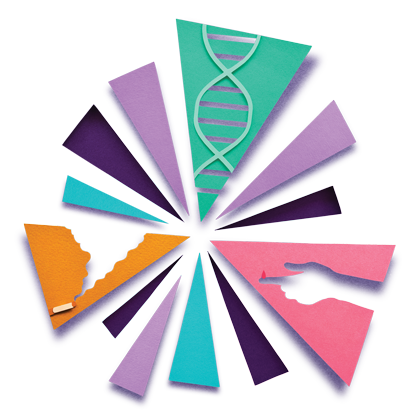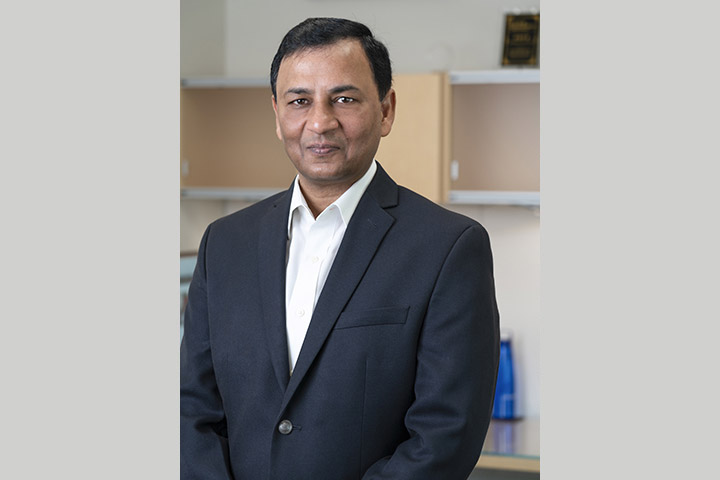Can AI Help Detect Pancreatic Cancer Early?

Researchers are betting big that AI can help detect pancreatic cancer at its earliest stages, when it is much more treatable.
For people at high risk of developing pancreatic cancer, yearly screening with endoscopic ultrasound and magnetic resonance imaging (MRI) allows doctors to find the smallest, earliest-stage cancers when surgery is still feasible.
But screening is not perfect. Interval cancers, those that develop between screenings, can occur, even when imaging studies show no problems. Based on clinical suspicion, doctors may recommend surgery that turns out to be unnecessary, treating low-grade benign precursor tumors. The surgery also puts patients at risk of postoperative problems.
In an ambitious project led by a multidisciplinary team at Johns Hopkins, gastroenterologists, radiologists, epidemiologists, biomedical engineers, and computer scientists will harness the power of AI to detect pancreatic cancer early.
An Ambitious AI Initiative
The Hopkins team is creating AI models that can find troublesome features in imaging studies and hone in on precancerous changes. These features are invisible to the human eye and may indicate a small but potentially curable pancreatic cancer. The AI models have the potential to help doctors diagnose pancreatic cancer earlier. This might reduce interval cancers, avoid unnecessary surgery, and improve outcomes in patients having surgery.
Even with expert help like that found at Johns Hopkins and other large institutions with robust pancreatic cancer screening programs, “We can misdiagnose the lesions we find and misjudge abnormalities that we think are worrisome,” explains gastroenterologist Marcia (Mimi) Canto, M.D., M.H.S., Principal Investigator. “Recommending surgery is a huge responsibility. So is not recommending surgery. We need to be able to get to the point where we recommend surgery at the right time, for the right patients.”
Johns Hopkins is home to the 26-year-long Cancer of the Pancreas Screening-5 Study (CAPS5), which began in 1998. This research program was developed to evaluate the effectiveness of early detection screening among high-risk individuals with a genetic or familial predisposition and to help find biomarkers that can markedly aid in improving earlier detection. The AI initiative will build upon CAPS5 to advance care for individuals at high risk for pancreatic cancer.
CAPS5 has contributed significant scientific knowledge about how to care for individuals at high risk for pancreatic cancer. In a paper published in June 2022 in the Journal of Clinical Oncology, analysis of CAPS5 data between 2014 and 2021 showed that on average, patients who maintained surveillance were much more likely to be diagnosed at stage I, while those who did not were more likely to be diagnosed at stage IV.
“This was a very important finding,” says Canto, who led the first iterations of the study back in 1998. “CAPS studies provide us with an incredibly rich prospective cohort of more than 2,500 high-risk individuals. We have the imaging data, and we have the clinical data from which we can build AI models.”
Building Deep Learning Models
The multidisciplinary Johns Hopkins team (Yukun Yan; Michael Goggins, M.B.B.Ch.,M.D.; Craig Jones, Ph.D.; Swaroop Vedula, M.B.B.S., Ph.D.; Venkata Akshintala, M.B.B.S.; Linda Chu, M.D.; Ashley Kiemen, Ph.D.; Ihab Kamel, M.D., Ph.D. [now at University of Colorado Medicine]) hopes to not only be able to identify and improve the detection of small pancreatic cancers, but also to identify highly dysplastic precancerous “invisible” microscopic tumors and the larger intraductal papillary mucinous neoplasms visible as cysts on CT or MRI.
However, AI is only as good as the information from which models are built. “That is going to be the most important aspect, but we have the right team moving forward and data that are scarce elsewhere. Building AI models is ‘very sophisticated and time-consuming work,’” adds Canto, who also serves as Director of Clinical Research in the Division of Gastroenterology. “But there is a tremendous translational impact to this work if we can get the AI models for diagnosis and prediction of progression to cancer into the clinics.”
AI models are computation computer models that mimic the human brain. To build these, the Hopkins team will analyze ultrasound and MRI images for changes in texture (radiomics). The computer extracts quantitative features from the images to find clues to differences between normal tissue and cancer. The team will use these features and relevant clinical information to train an AI model to distinguish small early-stage cancers and precancers from normal tissue. Then, the team will create AI models using deep learning to predict the risk of patients progressing to cancer in the next one, three, and five years. “If all goes well, this work will enable us to use our models in all patients, no matter what their risk is for pancreatic cancer,” Canto explains.
There is already a lot of research being done to develop AI for other cancers such as breast cancer. It’s important to note that, unlike pancreatic cancer, breast cancer screening exists for the general population; that gives researchers incredible amounts of imaging and clinical data with which to develop AI. For pancreatic cancer, there is no screening for the general population, which is why the “CAPS5 data is so critical in doing this kind of research,” Canto adds.
“We’ve assembled a very diverse group so that we can succeed in getting high-risk individuals the care they need when they need it,” explains Canto. It won’t be done overnight, but she is confident they will succeed. “To climb Mount Everest, you need to begin with a single step,” she says.





